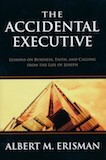Everything Matters: Playing Video Games as a Cultural Act
Video / Produced by The High Calling
My new iPad contains several dozen worlds. There’s a boy’s bed where little wind-up robots protect him from scary dinosaurs. There’s the Caribbean, where I get to sail, hoist the Jolly Roger, and relieve Spanish merchants of their sugar. There’s a fantasy kingdom under siege from hostile orcs and skeletons. And, of course, there are rooms of boxes, glass, and stones erected by pigs desperate to stave off assaults from irate avians.
While it is amazing that one digital device can be a doorway to so many imaginary places, not everyone is excited about this. Video games are still controversial. Even in the era of Angry Birds when touch-screen phones are seemingly universal, many people continue to see games as addictive time-wasters at best and dangerous corrupters at worst. We all know the complaints: games make people anti-social, out of shape, distracted, and violent. If someone goes on a shooting rampage, video games at least get a mention.
Part of the problem is that although game-playing has been present in every culture, not everyone gets games. That’s not so weird—each of us is built differently. Not everyone loves reading, as odd as that might seem to High Calling fans, but that hardly discredits the value of reading. And it shouldn’t stop us from trying to understand that value, even if it isn’t our cup of tea.
One of the great values of video games is play. God has built for us a remarkable playground in creation and set us loose. Play is natural for both bear cubs and human cubs. The joy of a session of Minecraft is a direct descendant of enthusiastic fun of mudpie play. Simple video games like Angry Birds, Fruit Ninja, and Where’s My Water? are really just complicated toys. The best ones, like the scribbling puzzle game Crayon Physics Deluxe, encourage us to exercise creativity in a freeform manner that would be difficult to do with any other kind of toy.
Video games also sharpen our minds. They motivate concentrated mental exercise. The award-winning, futuristic puzzle game Portal (and its sequel) force players to escape a maniacal computer by completing physics puzzles. The SimCity and Cities XL games teach a player to balance a wide range of urban development issues, from utilities to zoning to politics.
And many of today’s video games are excellent storytellers—Portal is a good example of this. Some of the most popular game series, like Fallout, Dragon Age, and The Elder Scrolls, have sprawling narratives that can take over 100 hours to complete—the equivalent of five seasons of a television show. The cast of characters can number in the dozens, and the plots can be intricate. (Unlike most of the games listed in this article, these have mature and sometimes disturbing material.)
My favourite aspect of video games, however, is their power to create other worlds. While books and TV shows and movies conjure up the Secondary Worlds that J.R.R. Tolkien and C.S. Lewis loved so much, video games allow us to touch them, in a sense. Because we travel and test the landscape in atmospheric artistic games like Flower and Journey, they become more real, more powerful to us. Because we interact with the noble Protoss and villainous Zerg of the Starcraft universe, we get a vivid idea of their alien nature.
There’s no question there are pitfalls in these other worlds. For example, the violence and representations of sexuality are often seriously problematic. And games can pull us in too far, sometimes becoming our whole universe. We have to be aware of these elements in any medium, not just in video games.
But creative play, mental challenge, narration, and imagination in today’s games are similar to what we experience when we learn to paint, ride a bike, or bake a non-virtual cake. That’s not to say games should take over all the time we spend on those things! It’s not an either/or equation. We can exercise the gifts that God gave us and reach our potential in many different ways, video games included.
Which means that from God’s perspective, I believe even Angry Birds can matter.
* * * * *
The "Everything Matters" Collection
- Creating a High Calling Culture
- Everything Matters: Editing as a Cultural Act
- Everything Matters: Easter as a Cultural Act
- Everything Matters: Teaching as a Cultural Act
- Everything Matters: From Rusty Chevy to Chrome-Plated Couch
- Everything Matters: Managing Operations as a Cultural Act
- Everything Matters: Reading as a Cultural Act
- Everything Matters: Hospitality as a Cultural Act
- Everything Matters: Living Alone as a Cultural Act
- Everything Matters: Travel as a Cultural Act
- Everything Matters: Public Relations as a Cultural Act
- Everything Matters: Playing Video Games as a Cultural Act
- Everything Matters: Book Publicity as a Cultural Act






